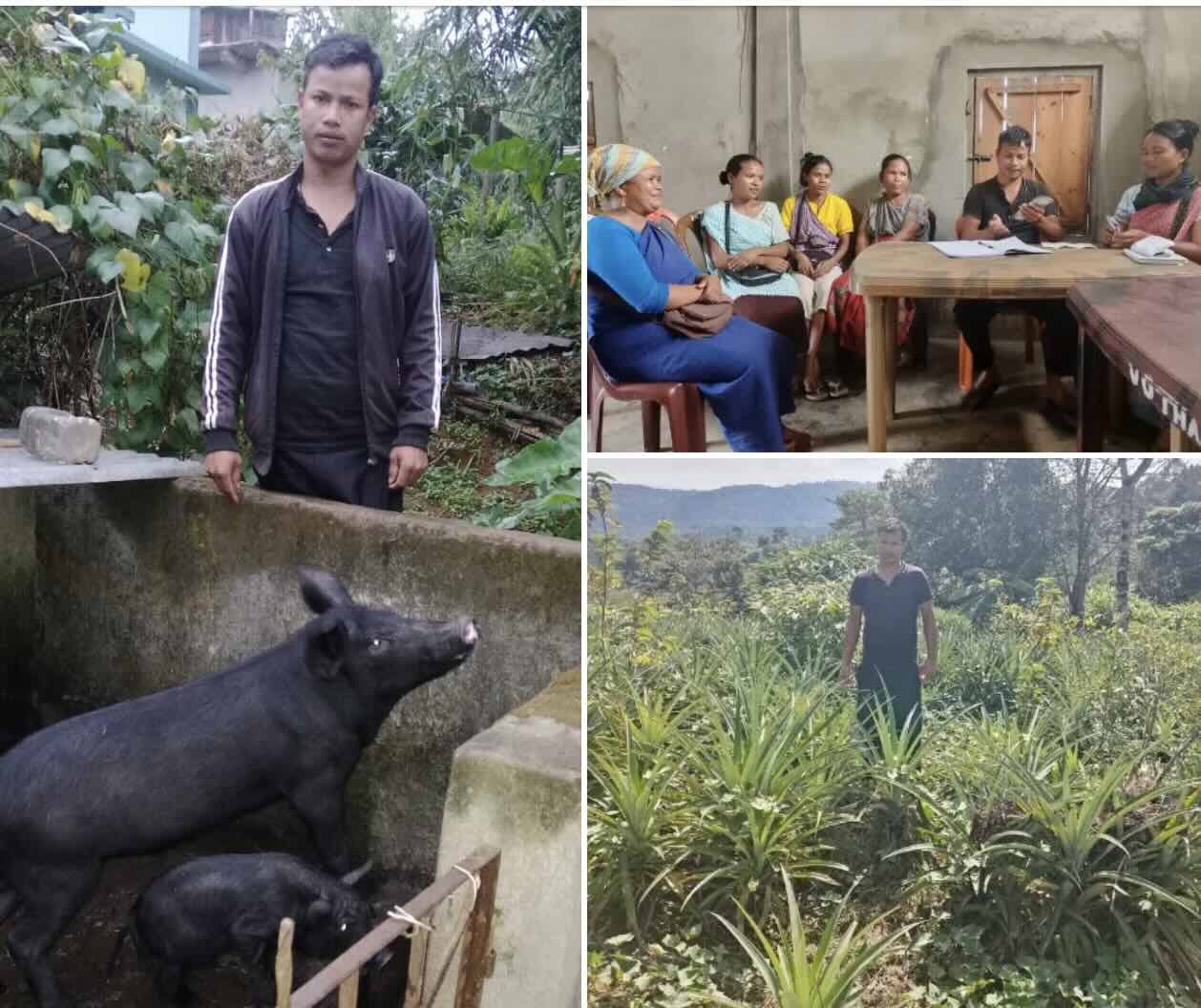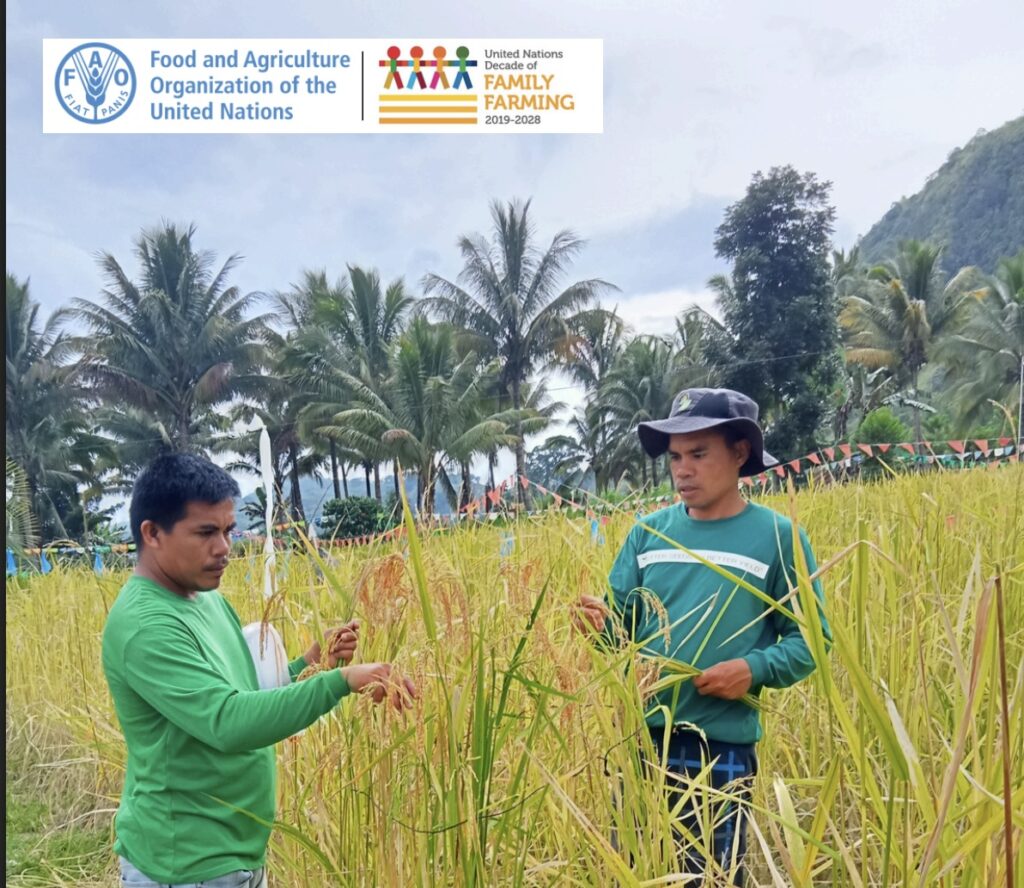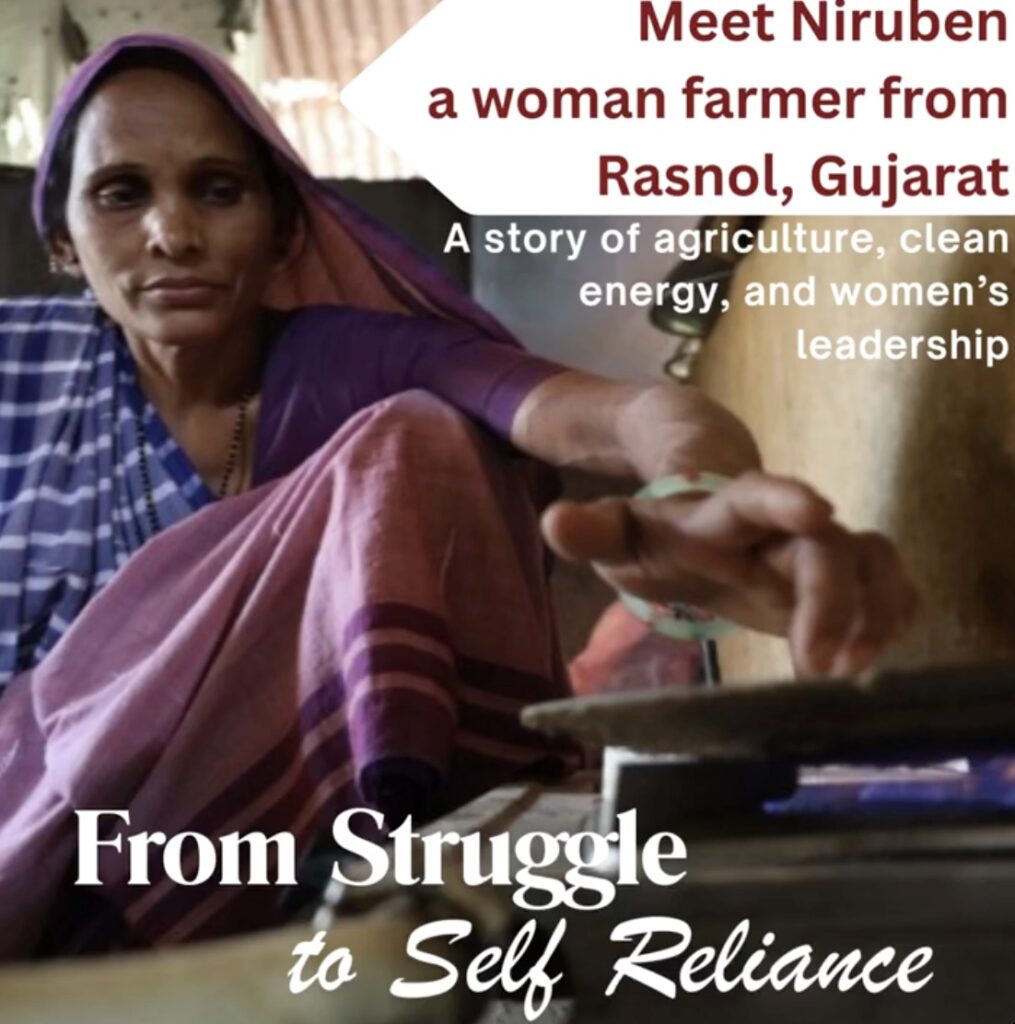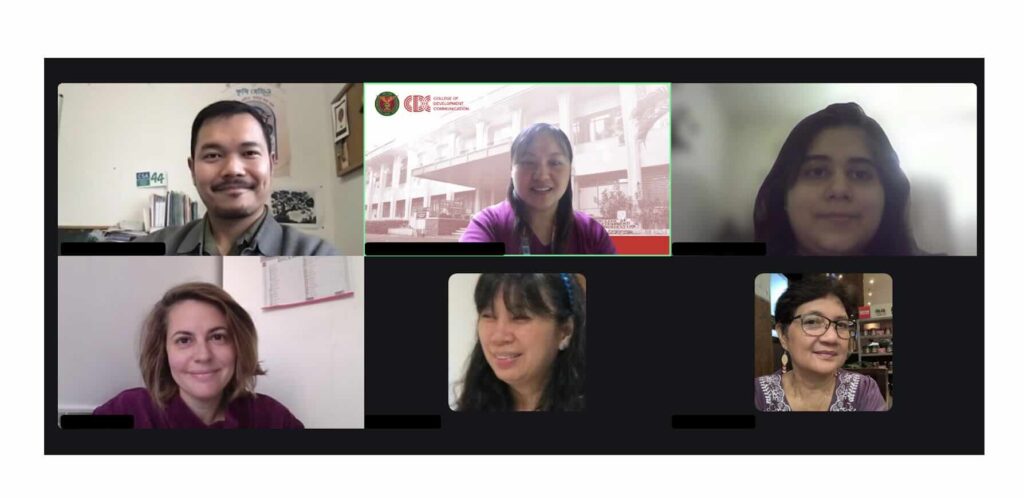
From struggle to strength: Baiengskhem’s journey through collective farming in India
Baiengskhem Lapang, 30, is a farmer from Thad village in Umsning block, Ri-Bhoi district, where he lives with his wife and two children. On his one-acre plot, he cultivates seasonal vegetables, pineapples, and ginger using traditional methods passed down through generations. Farming has always been central to his life, but age-old practices offered little opportunity for growth. Despite his dedication, low yields and limited profits made it difficult to sustain his family, leaving him uncertain about his future in agriculture.
In 2022, the North East India Committee on Relief and Development (NEICORD) began implementing the Asia-Pacific Farmers’ Program (APFP)–Farmers’ Organizations for Asia (FO4A) in Meghalaya. The APFP-FO4A program is implemented by the Asian Farmers’ Association for Sustainable Rural Development (AFA) and La Via Campesina (LVC), with funding from the European Union (EU) and the International Fund for Agricultural Development (IFAD). The program seeks to strengthen farmers’ organizations so they can deliver economic services, advocate for enabling policies, and build sustainable livelihoods for small-scale family farmers across Asia.
It was during this time that a neighbor invited Baiengskhem to an APFP-FO4A awareness program conducted by NEICORD. There, he was introduced to the power of collective action through Farmers’ Organizations (FOs). Motivated by this new knowledge, he joined the Thad Multi-Purpose Cooperative Society as a shareholder. Soon after, he was selected to serve on the marketing committee, where he began gaining leadership skills and modern agri-business knowledge through project-supported trainings.
As a member of the marketing committee, Baiengskhem took on the responsibility of building networks and identifying buyers, including institutional buyers, retailers, wholesalers, and even e-commerce platforms. By establishing direct market linkages, the committee eliminated middlemen who had long absorbed most of the profits.
With support from the project, the FO, under Baiengskhem’s leadership, successfully reached out to key stakeholders, raised its collective voice, and earned its first capital by supplying pineapple and ginger. Encouraged by this achievement, the cooperative shifted towards value-added processing, producing pickles, jams, and dried products. This strategic move opened new markets, stabilized member incomes, and set the foundation for a growing agri-business ecosystem.
In 2023, the Thad Multi-Purpose Cooperative received funding from the APFP-FO4A program to build a collection centre for raw pineapple and ginger and to procure machines for cleaning, grading, and processing ginger. This investment strengthened the cooperative’s capacity to access higher-value markets and improve product quality.
Baiengskhem’s journey reflects the transformative impact of an active marketing committee. From a disheartened farmer, he emerged as a progressive leader and a respected role model in his community. The cooperative’s growth increased member incomes, renewed youth interest in agriculture, reduced urban migration, and contributed to broader rural development. His transformation from a struggling traditional farmer to a recognized community leader through the Thad Multi-Purpose Cooperative Society illustrates how collective action, capacity building, and stronger market linkages can unlock scalable opportunities, convert subsistence farming into sustainable enterprises, and inspire rural youth to stay and thrive in agriculture.
Note: This article is originally published in the AFA website.



